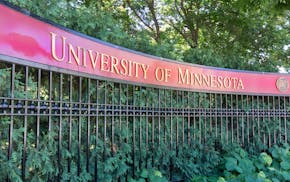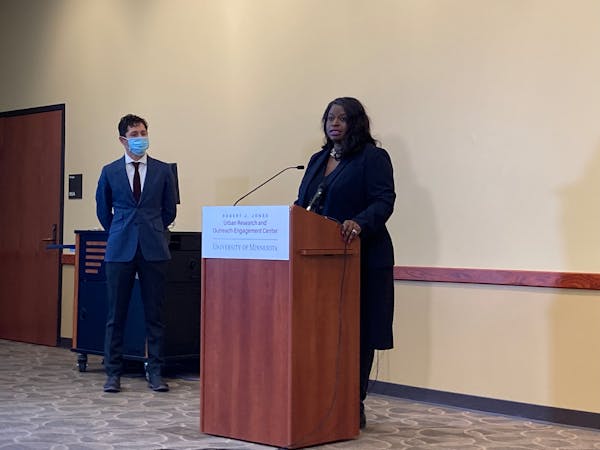After more than a century, the power balance in Minneapolis officially shifted Friday away from the City Council and Mayor Jacob Frey now runs City Hall.
"The role of the mayor of Minneapolis has now changed to become a more clear executive," Frey said Friday at a news conference where he was flanked by the city's department heads. "But the responsibility to serve all residents of our city is remaining unchanged."
In addition to re-electing Frey to a second term, voters in November approved a charter amendment that put the mayor in charge of day-to-day operations of most city departments and restricted the council's role to legislative duties such as writing ordinances and vetting city budgets.
Voters also rejected a separate ballot question to replace the Minneapolis Police Department — which is now under the sole control of the mayor — with a new public safety agency. Police Chief Medaria Arradondo, whose term expires in January, said Friday that he plans to make a public announcement early next week whether he will continue leading the embattled department. Frey has been in talks with the chief to encourage him to stay.
Arradondo said Friday that "it's important for me to have some potential conversations with my dear family members and immediate stakeholders" before making a decision.
To mark the first day of the new government structure, the mayor met with Arradondo and other city department heads to set a new tone and make it clear that a "strong mayor" system had gone into effect in Minneapolis.
Under that system, the charter amendment states that the council may not "usurp, invade, or interfere with the Mayor's direction or supervision of the administration." Proponents say the change allows Minneapolis residents to hold the mayor accountable and prevents a divided council from interfering with major decisions like public safety. Many department heads said they struggled to determine who was in charge and how to manage conflicts among elected leaders as the city faced crises like the coronavirus pandemic and George Floyd's killing by police.
Frey said the change means that city staff and department heads will no longer "need to do a mental vote count before they pursue their day-to-day operational work."
"Instead, they can focus on their areas of expertise without the complications of politics muddling the efficiency of their work," he said.
But the change has raised concerns. Opponents, including some council members, warned that giving the mayor more governing power than the City Council will lead to corruption and fail to meet the needs of their constituents.
Last month, Frey formed a workgroup to advise him on how he should set up city government under the new system. The group, which has started to meet, is expected to deliver its recommendations to the mayor by early next year.
"I'll be leaning on their expertise more than ever," Frey said referring to the department heads and the advisory group. "Because the decisions that we make over the next several weeks and months will have long-lasting impact for decades and generations to come."
The first City Council to confront its diminished role in January will be very different from the one in place today. Seven of its 13 members will be newcomers, and they will choose a new president to replace Lisa Bender, who did not run for re-election.
Bender and Council Member Cam Gordon, who lost his re-election bid, said Friday they are worried the charter change will roll back years of progress, because council members may no longer have the staff support to enact meaningful policy changes, especially if their political views don't align with those of the mayor. But one benefit of the change, Bender said, is that there are now clear lines of responsibility in Minneapolis government.
"The mayor has deferred to the City Council for the past four years on a lot of difficult decisions," she said. "He won't be able to do that anymore. He will have to step up and be a stronger leader for the city."

Teen suspect in Nudieland mass shooting arrested on murder, assault charges
'Human error' behind Robbinsdale shelter-in-place alert that was mistakenly sent countywide

Going to Wolves or Twins tonight? How to get there (and maybe avoid traffic).
Focusing on bringing football film into frame

